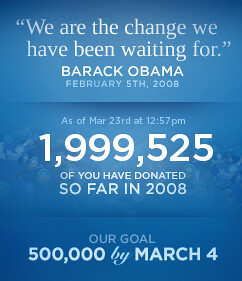
The Telegraph has made an astonishing vitriolic attack on 'Kool-Aid slurping Wikipedians' today.
Channeling Andrew Keen, Milo Yiannopoulos calls my friend Helen Milner "sickeningly PC" because she dare point out, and advocate for, those without access to the internet.
This arrogant fool seems to think she's talking about "making sure that Tower Block Tracy has access to MySpace".
No. She's not. It's about people like my mum having access to internet banking and saving and its higher interest rates. To Ryanair tickets. To online shopping deliveries if you are disabled (which lots of the 'digital disenfranchised' are). To all those benefits they miss out on.
What really got my goat though the sheer blinding sweeping ignorance of his attack on 'Kool-Aid slurping Wikipedians':
"Collaborative investigative journalism… feels good because it’s messy,” said [Channel Four's Tom] Loosemore, “and could work better than the old models.” Oh, yeah? I’d like to see a “messy” collective of Kool-Aid slurping Wikipedians conduct the sort of rigorous analysis necessary for the Telegraph’s recent MPs' expenses investigation. Can you imagine social media achieving anything like it? Of course you can’t: great journalism takes discipline and training – neither of which exists in Loosemore’s collaborative utopian fantasy.Well how about this then fool?
When the US House Judiciary Committee released a huge pile of documents relating to the firing of eight U.S. attorneys by Former US Attorney General Alberto Gonzales TalkingPointsMemo (TPM) faced exactly the same problem that the Telegraph has with the MPs expenses documents - making sense of their contents and finding the juicy stuff.
So what did they do? TPM turned to their readers, their thousands and thousands of readers.
Josh and I were just discussing how in the world we are ever going to make our way through 3,000 pages when it hit us: we don't have to. Our readers can help.Within a few hours gems were appearing. As slacktivist put it:
So here's what we're going to do. This comment thread will be our HQ for sorting through tonight's document dump.
And to make it efficient and comprehensible, we'll have a system. As you can see on the House Judiciary Committee's website, they've begun reproducing 50-page pdfs of the documents with a simple numbering system, 3-19-2007 DOJ-Released Documents 1-1, then 1-2, then 1-3, etc. So pick a pdf, any pdf and give it a look. If you find something interesting (or damning), then tell us about it in the comment thread below.
Please begin your comment with the pdf number and please provide the page number of the pdf.
This is simple and brilliant. The document dump has long been an effective means for burying a scandal under piles of paper, drowning reporters with a deluge of details. It's a way to "tell the truth, the whole truth" but not "nothing but the truth." Full disclosure of the needle along with full disclosure of the haystack. The TPM Muckrakers may have found a way to neutralize this tactic -- a way to sort through the haystack quickly enough that the details can be reported on before they're dismissed as "old news."How much quicker could we have got the juicy stuff out of the MPs expenses docs if 'citizen journalists' had been turned loose on them?
![Reblog this post [with Zemanta]](http://img.zemanta.com/reblog_e.png?x-id=0cac543d-fb9b-4be5-87a3-e791a0adef25)









 @PubSecBloggers
@PubSecBloggers












